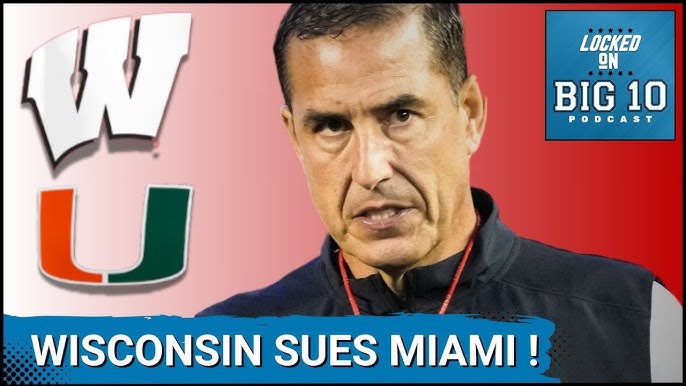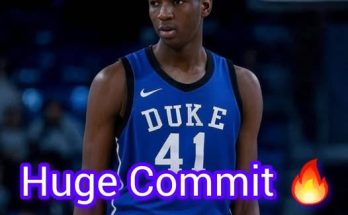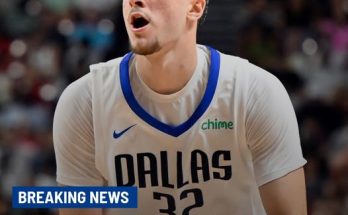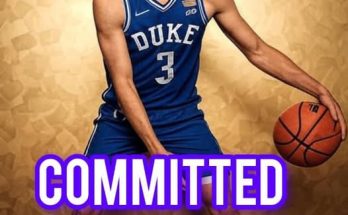In a bombshell move that has sent shockwaves throughout the college football landscape, the University of Wisconsin has officially filed a lawsuit against the University of Miami, accusing the Hurricanes of tampering with one of their top football players in a high-profile transfer controversy. The legal action, filed earlier this week in Dane County Circuit Court, alleges that Miami violated NCAA rules by engaging in improper contact and offering financial incentives to lure the Badgers’ standout player into the transfer portal—a move that Wisconsin claims has damaged the integrity of their football program.
The identity of the player at the center of this dispute has not been officially disclosed in court documents due to ongoing legal proceedings and NCAA privacy protections. However, multiple sources within the college football community suggest that the player is a rising star who had a breakout season with Wisconsin and was expected to play a pivotal role in the team’s future success. The player entered the transfer portal under mysterious circumstances in late spring, and just days later, committed to the University of Miami—a timeline Wisconsin officials call “deeply suspicious.”
According to the lawsuit, Wisconsin contends that Miami representatives, including unnamed boosters and intermediaries connected with the program’s NIL (Name, Image, Likeness) collectives, made direct or indirect contact with the player well before he had entered the transfer portal. This kind of communication is strictly prohibited under NCAA rules, which require that no tampering or recruiting occur until a player has formally declared their intent to transfer.
“This is about more than just one player,” said Wisconsin Athletic Director Chris McIntosh in a press release. “This is about protecting the integrity of college athletics. When programs disregard the rules and actively poach players from other rosters through illegal means, it creates an uneven playing field that undermines competition and trust across the board.”
The lawsuit seeks damages for what Wisconsin describes as “lost athletic value,” disruption of team cohesion, and reputational harm. The university is also demanding an injunction that would prevent Miami from playing the athlete in question during the 2025 season, pending a full NCAA investigation. This legal approach is rare in college sports but not entirely unprecedented; it reflects the growing tension between traditional program loyalty and the modern realities of NIL-fueled player movement.
Miami has denied any wrongdoing in the case, issuing a carefully worded statement through university counsel. “The University of Miami categorically denies all allegations of tampering,” the statement reads. “Our football program adheres to all NCAA regulations and expects the same of our competitors. We are confident that this matter will be resolved in our favor and urge the public to reserve judgment until all the facts are presented.”
This incident further highlights the murky waters that college football now navigates in the NIL era. Since the NCAA loosened restrictions on student-athletes profiting from their name, image, and likeness in 2021, the transfer portal has become a hotbed of activity and, at times, controversy. Critics argue that wealthy programs with deep-pocketed booster networks have turned the portal into a de facto free agency system, where the highest bidder can lure away talent regardless of ethics or regulations.
Former Wisconsin head coach Paul Chryst, who remains a consultant for the program, weighed in on the controversy during a local sports radio interview. “This is what happens when rules are left unenforced. We’ve always recruited with integrity, but now it feels like you’re constantly looking over your shoulder,” he said. “You lose a kid you’ve developed for two or three years, not because he’s unhappy, but because someone else dangled a big paycheck.”
Sources close to the Wisconsin program suggest that internal team morale has taken a hit in the wake of the alleged tampering. Several players reportedly considered transferring themselves, citing frustration with what they view as an unfair system where loyalty seems to count for less than money. Coaches have scrambled to reassure players and families that Wisconsin remains committed to fair competition and personal development.
On the other hand, supporters of Miami argue that the Hurricanes have done nothing wrong and are simply benefiting from the new competitive dynamics of college football. They point out that Miami has worked aggressively to build one of the nation’s most lucrative NIL infrastructures, giving players legitimate opportunities to earn endorsements, sponsorships, and other income. For many athletes, particularly those from underprivileged backgrounds, the appeal of a strong NIL package can be life-changing—and perfectly legal.
“It’s not tampering if the player made the decision on his own after entering the portal,” said one Miami source familiar with the situation. “Just because Wisconsin didn’t want to match our offer doesn’t mean we broke any rules.”
Still, legal experts say Wisconsin’s case could hinge on timing and evidence. If the Badgers can prove that contact occurred before the player’s official portal entry, it would constitute a clear violation. However, such proof is difficult to obtain unless there are emails, text messages, or witness testimonies showing illicit conversations. Even then, the NCAA has historically struggled to enforce tampering violations, often citing lack of resources or ambiguous guidelines.
“This lawsuit is both unprecedented and potentially game-changing,” said sports law attorney Alicia Holmes. “We’re witnessing the convergence of legal liability, regulatory confusion, and the shifting landscape of amateur athletics. Regardless of the outcome, it’s going to send a message to every program in the country.”
At the NCAA headquarters in Indianapolis, the case is being closely monitored. While the organization has not issued a formal comment, insiders say a new set of guidelines may be in development to provide more clarity and enforceability on NIL and transfer rules. Some athletic directors have even floated the idea of a “transfer window” with stricter guardrails and limited eligibility for NIL-deal incentives—though such measures would likely face legal challenges from athletes’ rights advocates.
In the meantime, the saga has stirred emotions across the fan bases of both programs. Wisconsin supporters have expressed outrage on social media, calling for stronger enforcement and even suggesting boycotts of future matchups with Miami. Hurricanes fans, by contrast, have rallied behind their team, viewing the lawsuit as a sign of envy and outdated thinking from a Big Ten school unable to keep up with the modern game.
“This isn’t just about Miami and Wisconsin,” said ESPN analyst Kirk Herbstreit during a recent segment. “This is about where college football is headed. Are we going to embrace the business side of it or try to hold onto something that may already be gone?”
With preseason practices set to begin in just a few weeks, both programs now face distractions they didn’t plan for. Miami must deal with the legal fallout and potential NCAA scrutiny, while Wisconsin works to fill the void left by the departing player and reassure its stakeholders that justice will prevail.
As the lawsuit makes its way through the court system, one thing is clear: college football is at a crossroads. The stakes have never been higher, and the line between tradition and transformation has never been blurrier. What began as a simple transfer may ultimately reshape the rules of engagement for an entire sport.



